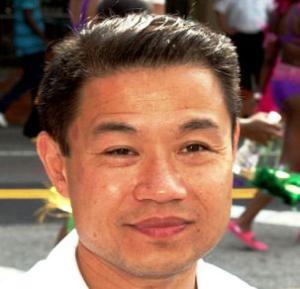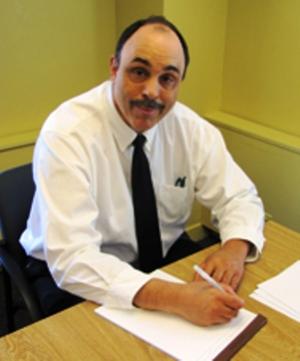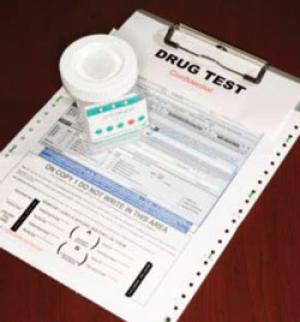An initiative campaign that aims to make Florida the first Southern medical marijuana state has passed an important early hurdle. It's looking at the November 2014 ballot -- if the legislature hasn't acted by then.
Now more than ever, StoptheDrugWar.org needs your financial support to continue to provide this crucial informational tool that builds and empowers the movement. We have a special new offer for those donating $50 or more, which this post provides some updated information about.
Oregon is about to join the ranks of states with licensed, regulated medical marijuana dispensaries.
Two years after signing a medical marijuana bill into law, Delaware Gov. Jack Markell is finally moving to get a dispensary up and running. He had been scared off by a federal threat letter, but no longer.
Under pressure, New Jersey Gov. Chris Christie (R) issued a conditional veto of a bill allowing children to use medical marijuana, but said he would approve it if the legislatue made changes. Now the Senate has done so, and the Assembly is expected to act shortly.
Dispensaries get regulation in Oregon, a dispensary will open in Delaware, and they're already popping up in Arizona. There's more medical marijuana news, too.
North Carolina's governor has vetoed a welfare drug testing bill passed by his Republican colleagues in the legislature. It's "not a smart way to combat drug abuse," the Republican elected earlier this year said.
New York City's chief fiscal officer is calling for the legalization, regulation, and taxation of marijuana. He wants to use the proceeds to cut tuition at CUNY.
A new poll shows a broad consensus that the drug is "failing," but beyond that, a deeply split public when it comes to what to do about it.
The ACLU of Illinois has filed a class-action lawsuit against the Chicago Housing Authority seeking to block mandatory, suspicionless drug testing of mixed-income housing residents.
Canadian top cops are calling for the option of just ticketing marijuana possession offenders, but they don't want to say the word "decriminalization." A rose by any other name...
An alleged New Hampshire heroin dealer who was shot dead fleeing police is the year's 25th drug war enforcement fatality. It's not clear why he was shot.
More sticky-fingered cops, including one on a DEA task force, a cop tries to cover up a fatal drug deal at his home, another cop goes away over dope and hookers, and another jail guard goes down.
One of the major national drug policy reform organizations is hiring a new executive director. You have until September 9 to apply, and applications are being considered as they come in.
Interns are making an important difference fighting the good fight with us at StoptheDrugWar.org.
Could Florida be the first state in the South to approve medical marijuana? A bill that would have done that was stymied this year in the legislature, but its proponents have vowed to continue the fight next year. And in the meantime, a move to put a constitutional amendment that would allow medical marijuana on the November 2014 ballot is moving forward.
Florida initiative organizers face an uphill battle. To make next year's ballot, petitioners must come up with some 683,419 valid voter signatures by February 1. Last week, the initiative campaign, known as
United for Care, passed its first hurdle, turning in more than 110,000 signatures to trigger a state Supreme Court review of its language. Only 68,000 valid signatures were needed, but organizers wanted a nice cushion to ensure that they have the necessary numbers.
While awaiting the Supreme Court's imprimatur, the paid signature gathering campaign is on hold, although volunteer efforts continue. Once the high court gives its okay, phase two of the signature gathering will get underway, with more than a half million needing to be gathered. Organizers are looking to turn in signatures by the end of the year, ensuring they are verified in time for the February 1 deadline.
The state, the nation's fourth most populous with nearly 20 million people, is not an easy place to run an initiative. Needing hundreds of thousands of signatures means an extensive paid signature gathering campaign, as well as volunteers, and that's just to make the ballot. The state's multiple media markets mean it will take millions of dollars more in late advertising to ensure that the initiative actually passes come election day.
Circulating under the ballot title "Use of Marijuana for Certain Conditions," the initiative would allow for the medicinal use of marijuana for a list of specified conditions as well as "any other conditions for which a physician believes that the medical use of marijuana would likely outweigh the potential health risks for a patient."
It would set up a system of state-regulated marijuana cultivation and distribution centers and would provide ID cards to patients and caregivers. But it would not allow patients or caregivers to grow their own.
At this stage of the game, advocates are certain they will succeed and are chomping at the bit.
"We are absolutely going to make the 2014 ballot," vowed Kim Russell, founder of People United for Medical Marijuana (PUFMM), which is running the United for Care campaign. "And we're very confident the Supreme Court will approve the wording."
Russell has some reason for her confidence. The initiative was written by Florida constitutional attorney John Mills, one of the state's foremost experts on initiatives, and a man who has written more than a dozen initiatives that have passed Supreme Court muster.
"We've got the best, and I'm sure this is going to be approved," said Russell.
A Florida initiative won't be cheap. Russell estimated that it would take between $2 ½ million and $5 million just to make the ballot, and another $5 million in advertising in the run-up to the 2014 election. But the campaign has had an early boost with the presence of John Morgan, a major Democratic Party fundraiser, who is now chairman of the campaign's political action committee.
In addition to paid signature gatherers, the campaign is relying on an extensive network of volunteers to make the ballot and it is working with existing activist groups.
The Florida Cannabis Action Network (FL CAN) has been concentrating its efforts on getting a medical marijuana bill through the legislature. Despite intense lobbying, it didn't happen this year. FL CAN remains committed to getting a bill through next year, but is also organizing volunteers to gather signatures for the initiative.
"Getting the Cathy Jordan Medical Marijuana Act passed is our Plan A," said FL CAN director Jodie James, "but the initiative is Plan B. The initiative has licensed dispensaries, but no personal cultivation, but we're still putting our energy behind the amendment. Florida CAN will do whatever we need to ensure that patients in this state don't have to be afraid. If we don't succeed in the legislature, we want to make sure we have enough signatures to get on the ballot in 2014."
Cathy Jordan is perhaps Florida's most well-known medical marijuana patient. The Parrish resident is a long-time sufferer of amyotrophic lateral sclerosis (ALS, commonly known as Lou Gehrig's Disease), and she and her husband have been lobbying for years to win the ability to legally use marijuana to treat her symptoms.
It is her name that adorned this year's thwarted medical marijuana bill, and it was a February raid on her residence by local law enforcement after she went public with her lobbying that helped focus outrage on the state's last-century approach to the healing herb.
"It's not exactly what we would have done, and it leaves some things to be desired, such as not being able to grow your own, but I have to give John Morgan credit," said Jordan's husband Bob. "He brought a lot of interest and money to it, and while we may be on different paths, we're going toward the same destination."
"We're working with him because we all want basically the same thing," said Cathy Jordan, her voice barely understandable due to the effects of her disease. "We think our bill is a better and faster fix because they can work all this stuff out. The legislature says the bill is too big, too bulky, but they need to do their job. But with the bill and the initiative, we're all heading for the same place."
But while they're looking to the legislature, the Jordans are also working to help the initiative.
"We were out getting signatures here in Bradenton this weekend," Bob Jordan related. "I ran into an Iraq and Afghanistan veteran who wants to use cannabis, but he can't. In states where it's legal, he could use it, but here, he's a criminal. This guy is ready to eat a bullet. This is definitely a vets' issue, too."
While both the Jordans and FL CAN grumbled about no personal cultivation, Russell said there was good reason not to include personal grows.
"We did a lot of polling before we wrote the initiative; we had to make sure this thing could not fail," she said. "We got 70% for medical marijuana, but when we asked about growing it, the approval rate dropped to 30%. If you're spending this much money, time, and effort, you can't take a chance on losing."
National reform groups are watching with interest.
"It's a daunting process down there, but it sounds like there is a lot of energy and potentially a lot of resources," said Tvert. "We hope they qualify, and we certainly hope they're successful. A whole lot of old people would find relief for their ailments."
Turning Florida medical marijuana green would be a big deal, Tvert said.
"It's the largest state in the South. If Florida passed this, the number of people living in medical marijuana states would increase dramatically. There is significant support for this initiative; we hope that support will be reflected in the months to come."
Pressure for medical marijuana has been building for years now, and it looks like 2014 is the year. Whether via the legislature or via the initiative process, Florida appears poised to join the ranks of the medical marijuana states.
back to top
Dear friend of drug policy reform,
StoptheDrugWar.org needs your support more than ever before to continue our work of getting the word out online for the drug policy reform movement, building the movement, and providing this crucial informational tool that reformers around the world use in their work every day. I ask your support at this time with the most generous donation you can afford to enable this newsletter to continue.
In recent weeks we've announced our latest offer for members donating $50 or more, author-signed copies of three important new books. Phil has now completed reviews of all three of these works, most recently NYT bestselling author Doug Fine's -- Too High to Fail: Cannabis and the New Green Economic Revolution, as well as Marc Mauer and Sabrina Jones's Race to Incarcerate: A Graphic Retelling and Carl Hart's High Price: A Neuroscientist's Journey of Self-Discovery That Challenges Everything You Know About Drugs and Society.
To donate, and to order any of these or other items we offer, please use our online donation form at http://stopthedrugwar.org/donate, or scroll down for info on donating by mail. We are asking donations of $50 or more for a signed copy of any one or these books, $95 or more for signed copies of any two, or $135 or more for signed copies of all three. (If more than 25 people order the books by the time you place your order, we will ask the authors if they're willing to sign more. If that can't be worked out, we'll contact you and offer to make different arrangements, whether for a full or partial refund or to send different items.)
Now, $50 is a little more than we've asked for such items in the past, and of course they can be ordered online or purchased in a bookstore for less. Things have changed in the drug reform funding scene, making our organization more dependent on membership to continue our programs -- I hope you'll choose to support us at this time. Note that we continue to offer a range of books, videos, and StoptheDrugWar.org gift items with donations of as little as $7 -- visit our donation form to see the full list.
Also note that donations to StoptheDrugWar.org can be tax-deductible, supporting our educational work, or non-deductible, supporting our lobbying work. (Note that selecting any gift items reduces the amount of your donation that is deductible -- which with a smaller gift amount can be most of it.) Donations can be made by credit card or PayPal at http://stopthedrugwar.org/donate, or sent by mail to P.O. Box 18402, Washington, DC 20036. If you are donating by check, please make it payable to DRCNet Foundation (if tax-deductible) or Drug Reform Coordination Network (if not deductible). If you wish to donate stock, the information to give your brokerage is Ameritrade, (800) 669-3900), DTC#0188, and account number 781926492 for tax-deductible gifts or 864663500 for non-deductible gifts -- please make sure to contact us if donating in this way.
Thank you for standing with us to stop the drug war's cruelties and meet the opportunity this time offers to make a brighter future. As recent events show, time and the truth are on our side!
Sincerely,

David Borden, Executive Director
StoptheDrugWar.org
Washington, DC
http://stopthedrugwar.org
back to top
Oregon is about to join the ranks of states with legal, regulated medical marijuana dispensaries after Gov. John Kitzhaber (D) Wednesday signed into law a bill designed to do just that.
Kitzhaber signed
House Bill 3460, which authorizes the Oregon Health Authority to establish procedures to license and regulate dispensaries. But he did so with a distinct lack of enthusiasm.
In his signing statement, Kitzhaber warned that anyone involved with medical marijuana still faces possible federal prosecution and said that he had received many requests from concerned parties to veto the bill and that he "shares those concerns to a certain extent." He also urged the director of the Health Authority "to broadly engage all stakeholders, including law enforcement" in promulgating rules.
That said, Kitzhaber also said he had two main goals with the bill. "First, we want to ensure the overall safety of our communities through appropriate rules to license and regulate dispensaries, and second, we want to allow the patients safe access to marijuana if they are eligible for treatment under the Oregon Medical Marijuana Act."
Oregon has an estimated 200 dispensaries already operating, but until now, they have operated in a legal gray area and have been subject to harassment and prosecution depending on the attitudes of local police and prosecutors. This bill will require them to register under OMMA and comply with regulations, which will include testing, tracking to ensure that only valid patients are receiving marijuana, and restrictions on location.
The governor's concerns notwithstanding, advocates praised the signing of the bill.
"We are pleased to get both the signature and the direction from Governor Kitzhaber. Now it is up to those people who are part of the medical marijuana program that we draft these rules right and implement them responsibly to provide both safe access to patients and be good neighbors in our communities," said Geoff Sugerman, one of the leading proponents of the bill.
"This is the next step in ensuring a system that provides safe access to as many patients as possible while making sure these facilities are holding themselves to a high standard of conduct," said Sam Chapman, a lobbyist for Oregonians for Medical Rights who helped draft the bill. "Now we need to make sure those who are operating facilities understand their responsibilities to their patients and their communities."
State Rep. Peter Buckley (D-Ashland) and State Senator Floyd Prozanski (D-Lane County) were chief sponsors of the bill.
[For extensive information about the medical marijuana debate, presented in a neutral format, visit MedicalMarijuana.ProCon.org.]
back to top
More than two years after signing a medical marijuana bill into law, Delaware Gov. Jack Markell (D) signaled Thursday that he is ready to move forward with drafting regulations for dispensaries, or "compassion centers" in Delaware-speak. Markell halted the dispensary portion of the law after in February 2012 after receiving a letter from US Attorney Charles Oberly warning that the state risked federal action if it moved to regulate dispensaries.
But in a letter to lawmakers Thursday,
Markell said he will issue a request for a proposal to open a single dispensary next year. The 2011 law called for dispensaries in each county of the state's three counties.
Markell acted after other states, including New Jersey and Rhode Island, have issued licenses for dispensaries without the federal government coming down on them.
"The sensible and humane aim of state policy in Delaware remains to ensure that medical marijuana is accessible via a safe, well-regulated channel of distribution to patients with demonstrated medical need," the Wilmington News Journal quoted Markell as saying in the letter. The letter was addressed to Sen. Margaret Rose Henry and Rep. Helene Keeley, both Wilmington Democrats who had supported the bill and urged Markell to move forward.
Currently, Delaware medical marijuana patients are in limbo. While they can register as patients with the state, they have no legal place to buy their medicine, and the state law does not permit them to grow their own.
In the letter, Markell said he hoped to address Justice Department concerns by including "tight security requirements," including round-the-clock video monitoring and limiting the dispensary to growing 150 plants and keeping an inventory of no more than 1,500 ounces of usable marijuana.
The Marijuana Policy Project, which had helped shepherd the law's passage, said in a message to supporters Thursday that Markell's move was "very welcome news that is a long time coming."
[For extensive information about the medical marijuana debate, presented in a neutral format, visit MedicalMarijuana.ProCon.org.]
back to top
New Jersey Gov. Chris Christie (R) Friday conditionally vetoed a bill that would have expanded the number of marijuana strains available to patients and allow minors to be treated with medical marijuana with a doctor's referral, but he said he would sign the bill if the legislature specified that marijuana could only be given to minors with a referral from two doctors, including a psychiatrist and a pediatrician. Christie also insisted that marijuana edibles only be given to minors. He conversely relented to allow dispensaries to grow a larger number of strains in order to serve more of patients' needs.
Christie acted just two days after being confronted at a campaign stop by Brian Wilson, father of two-year old Vivian Wilson, who suffers from a rare medical condition that includes a severe form of epilepsy that anti-seizure medications have failed to control. Wilson and dozens of supporters demanded the governor quit stalling and act on the bill.
"Protection of our children remains my utmost concern and our regulations must make certain that children receive the care they need, while remaining well-guarded from potential harm," Christie said in a memo sent to lawmakers. "Today, I am making commonsense recommendations to this legislation to ensure sick children receive the treatment their parents prefer, while maintaining appropriate safeguards. I am calling on the legislature to reconvene quickly and address these issues so that children in need can get the treatment they need."
On Monday, the state Senate quickly approved Christie's desired changes to Senate Bill 2842, which was originally drafted to help the Wilsons obtain treatment for their daughter.
"No one who is suffering with a painful and debilitating illness should be denied relief if it can be provided, and that is especially true for a young child," said Sen. Joe Vitale (D-Middlesex). "The Wilson family has been prevented from getting their child the help she needs as a result of severe restrictions placed on our state program. We should not make their family, nor any other family in New Jersey, wait any longer for relief. While I believe far too many limitations still exist, these changes will help to remove some of the barriers faced by eligible patients."
"Our medical marijuana law was already the strictest in the nation. The program has been made so restrictive that it has prevented eligible patients from obtaining the relief they are entitled to under the law," said Sen. Nick Scutari (D-Union). "These common-sense changes are a small step toward ensuring that children who are suffering from a debilitating condition can get the compassionate care they deserve. I want to thank the Wilson family for working with us on this legislation and for their advocacy on behalf of their daughter, Vivian, and all of the children of the state who are in need of treatment."
The bill now goes to the Assembly for consideration.
[For extensive information about the medical marijuana debate, presented in a neutral format, visit MedicalMarijuana.ProCon.org.]
back to top
Dispensaries get regulation in Oregon, a dispensary will open in Delaware, and they're already popping up in Arizona. There's more medical marijuana news, too; let's get to it:
ArizonaLast Wednesday, the first medical marijuana dispensary in Yuma opened for business. The Jamestown Center on East 32nd Street will serve qualifying patients and is staffed with three pharmacists and a biochemist.
On Tuesday, a new dispensary opened in Tucson. The Downtown Dispensary could potentially be the city's busiest; it is the closest one to the University of Arizona.
California
Last Wednesday, state legislators gave up on a dispensary regulation bill in the face of strong opposition lobbying from law enforcement unions. Senate Bill 439 would have given the state attorney general's guidelines on dispensaries the force of law. Under the status quo, which will now continue indefinitely, the guidelines are not legally binding, allowing recalcitrant law enforcement and local prosecutors to ignore them.
On Tuesday, Fresno County supervisors sought to beef up the county's marijuana growing ordinance. They asked legal staff to explore ways to toughen up the ordinance after county residents complained about rampant pot farming. Residents talked of generators humming all night, dogs running loose and squatters. They said they are afraid to walk off their property or have guests over. Under the current ordinance, violations are punishable by a $100 fine. Some supervisors want to emulate nearby Kern County, where grow ordinance violations are treated as misdemeanors, with up to six months in jail and a $1,000 fine. Other supervisors said the county should just enforce the existing ordinance.
Also on Tuesday, the Napa city council scrapped a proposed dispensary ordinance. The city had spent four years trying to craft it. The council also declined to move forward on a proposed ban. The only action the council could agree to was to send a letter to lawmakers bemoaning the confusion over medical marijuana laws. The city has an existing moratorium on dispensaries, but that is set to expire in October.
Colorado
On Wednesday, activists protested at the state Board of Health over allegations that the Department of Public Health and Environment has been illegally sharing confidential patient information through an online database. Laura Kriho of the Cannabis Therapy Institute and Kathleen Chippi of the Patient and Caregiver Rights Litigation Project authored an emergency petition calling for the database to be disabled. The Health Department has agreed to improve security, but the protesters want to see quicker action.
Delaware
Last Thursday, Gov. Jack Markell (D) announced he would move forward with opening a state-registered dispensary. He had balked at implementing that portion of the state's 2011 medical marijuana law after receiving a threat letter from federal prosecutors, leaving the state's patients without any legal access to their medicine. The law called for one dispensary in each of the state's three counties, but Markell said he would start with one.
Florida
Last Thursday, medical marijuana initiative organizers cleared their first hurdle on the way to the November 2014 ballot. They handed in more than 110,000 voter signatures, well above the 68,000 valid signatures required to trigger a review of the initiative's language by the state Supreme Court. See our feature story on the Florida effort.
Massachusetts
On Saturday, a Sandisfield town hall meeting rejected a proposal for the town to explore running a nonprofit dispensary. The proposal would have allocated $30,000 for a consultant who would advise the town on how to submit an application before next week's competitive filing deadline.The state is currently accepting applications for up to 35 statewide dispensaries. The deadline is August 22.
Michigan
On Tuesday, DEA agents raided an Ann Arbor dispensary. Hit was People's Choice Alternative Medicine. The dispensary had a sign on the door Tuesday afternoon saying it was closed until further notice. It's the second such raid by the DEA in Washtenaw County in a month. On July 30, a search warrant was executed at The Shop -- a medical marijuana dispensary in Ypsilanti.
New Jersey
Last Thursday, the state's only dispensary reopened after being closed for seven weeks. The Greenleaf Compassion Center in Montclair had closed its doors because of a lack of supply. Because it is the only dispensary operating in the state, it quickly was overwhelmed by demand. Now, they will limit new patients to the seven-county north Jersey region it was originally licensed to serve. Two other dispensaries, one in Woodbridge and one in Egg Harbor, have been given permission to begin growing their crops and are expected to open this fall.
Last Friday, Gov. Chris Christie (R) conditionally vetoed a bill allowing medical marijuana for children, but signaled to the legislature that he would okay it if it were changed to require that kids see not only a pediatrician, but also a psychiatrist, and if the use of medical marijuana edibles were limited to children. On Monday, the state Senate approved those changes. Action awaits in the state Assembly.
New Mexico
Last Wednesday, the state Medical Board postponed a hearing on proposed new rules for providers, saying high public interest required it to find a larger meeting space. The hearing was set for a space holding 100 people, but the board said it now expects 400 to attend. It will provide 30-day notice of the new hearing date. The proposed new rules include requiring providers to consult with a patient's other medical providers and requiring a periodic re-diagnosis of conditions warranting medical marijuana use.
Oregon
Last Thursday, Gov. John Kitzhaber (D) signed into law a medical marijuana dispensary bill. Kitzhaber signed House Bill 3460, which authorizes the Oregon Health Authority to establish procedures to license and regulate dispensaries. Oregon has an estimated 200 dispensaries already operating, but until now, they have operated in a legal gray area and have been subject to harassment and prosecution depending on the attitudes of local police and prosecutors. This bill will require them to register under OMMA and comply with regulations, which will include testing, tracking to ensure that only valid patients are receiving marijuana, and restrictions on location.
[For extensive information about the medical marijuana debate, presented in a neutral format, visit MedicalMarijuana.ProCon.org.]
back to top
North Carolina Gov. Robert McCrory (R) Thursday vetoed a welfare drug testing bill pushed through the legislature by his Republican colleagues. Drug testing welfare applicants or recipients was a "government overreach," he said.
The bill,
House Bill 392, would have required people applying for the state's welfare and food stamp programs to undergo drug testing if social service workers determined there was reasonable suspicion they were using drugs. It would also have required county workers to ensure that applicants did not have outstanding felony warrants and were not violating probation.
"While I support the efforts to ensure that fugitive felons are not on public assistance roles, and to share information with law enforcement, other parts of the bill are unfair, fiscally irresponsible, and have potential operational problems," McCrory said in a veto statement. "Drug testing Work First applicants as directed in this bill could lead to inconsistent application across the state's 100 counties. That's a recipe for government overreach and unnecessary government intrusion," he said.
"This is not a smart way to combat drug abuse," McCrory continued. "Similar efforts in other states have proved to be expensive for taxpayers and did little to actually help fight drug addiction. It makes no sense to repeat those mistakes in North Carolina."
While vetoing the bill, McCrory did issue an executive order that would implement the bill's fugitive felon provision.
The veto won praise from civil liberties and civil rights advocates.
"Our state and federal constitutions protect the privacy and dignity of all North Carolinians against unreasonable searches, and all available evidence has shown that welfare applicants are no more likely to use drugs than the general public," Jennifer Rudinger, executive director of the ACLU in North Carolina said in a statement.
The ACLU and other groups had written McCrory on July 31 urging him to veto the bill.
back to top
New York City Comptroller John Liu Wednesday released a report calling for the legalization, regulation, and taxation of marijuana. Doing so would reduce the harms generated by marijuana prohibition and generate more than $400 million a year in taxes to pay for higher education, Liu said.

New York City Comptroller John Liu (wikipedia.org)
The comptroller is the chief fiscal officer and financial officer for the city. Liu, who has served one four-year term, is not seeking reelection.
"New York City's misguided war on marijuana has failed, and its enforcement has damaged far too many lives, especially in minority communities," said Comptroller Liu. "It's time for us to implement a responsible alternative. Regulating marijuana would keep thousands of New Yorkers out of the criminal justice system, offer relief to those suffering from a wide range of painful medical conditions, and make our streets safer by sapping the dangerous underground market that targets our children. As if that weren't enough, it would also boost our bottom line."
Liu estimated the size of the city's marijuana market at $1.65 billion a year and proposed using tax revenues from the legalized trade to cut tuition at the City University of New York (CUNY) by up to 50%.
"In this way, we'll invest in young people's futures, instead of ruining them," he said. "By regulating marijuana like alcohol, New York City can minimize teens' access to marijuana, while at the same time reducing their exposure to more dangerous drugs and taking sales out of the hands of criminals."
Under Liu's proposal, adults age 21 and over could possess up to one ounce of marijuana, which would be grown, processed, and sold by government-licensed businesses for recreational or medicinal purposes. A strict driving under the influence enforcement policy would be implemented concurrently, and marijuana use in public would be prohibited.
The report comes just days after a federal judge slammed the city for its stop-and-frisk policing tactics, which have played a key role in making the Big Apple the world leader in marijuana possession arrests. The street searches are racially biased, the judge found, ordering reforms.
"New Yorkers, like people elsewhere around the country, are questioning our broken polices related to marijuana," said Gabriel Sayegh, New York director of the Drug Policy Alliance. "Comptroller Liu's report offers another important opportunity for New Yorkers to examine the issues and discuss the range of options for fixing these laws. An increasing number of elected officials in the City and state agree that our marijuana policies are broken -- resulting in racial disparities, Constitutional violations, fiscal waste and needless suffering. While there may not be widespread agreement about how to fix these problems, it's critical that we have an open and vigorous debate about the issue."
back to top
Four decades after President Richard Nixon ushered in the modern war on drugs, fewer than one out of 20 Americans think it is being won, according to a new poll. A Rasmussen Reports poll released on Sunday found that only 4% of respondents believe that the US is "winning" the war on drugs. Some 82% said it is "losing."
"Americans continue to overwhelmingly believe that the so-called war on drugs is failing, but they are more divided on how much the United States should be spending on it," Rasmussen concluded.
While agreement that the drug war is a failure is at near consensus levels, the Rasmussen poll also revealed a public deeply divided over what to do about it. More than half (55%) think there are too many people in prison, and nearly as many (51%) agree with Attorney General Holder's call to reduce the prisoner load by reducing reliance on mandatory minimum sentencing. At the same time, 54% said illegal drug use is primarily a criminal justice problem, not a public health problem.
The poll also showed Americans split nearly evenly on marijuana legalization, with 44% approving of it and 42% disapproving. The numbers supporting legalization are lower than most recent polls, where in the past year support has consistently climbed above 50%, but still show more Americans supporting legalization than opposing it.
The survey was conducted Aug.12-13, and involved interviews with 1,000 American adults, and has a margin-of-error of plus/minus 3.1%.
back to top
The ACLU of Illinois Thursday filed a class-action lawsuit against the Chicago Housing Authority (CHA) over its policy requiring drug testing of residents in mixed-income developments. The ACLU charges in US District Court that the CHA's policy of suspicionless drug testing violates the Fourth Amendment's proscription on unreasonable searches and seizures.

Lawsuit plaintiff Robert Peery (aclu-il.org)
A positive drug test would lead to the eviction of the resident.
The CHA instituted the mixed-income residence drug testing program as part of its "Plan for Transformation," which tore down many of the city's crime-ridden high-rise housing developments and replaced them with mixed-income developments. Residents of the demolished low-income housing developments were given the option of moving into the new properties, but were required to take an initial drug test and be tested again every time the lease was renewed.
"Through the CHA's mixed-income program, public housing families reside in housing that is new, privately-owned and privately operated, alongside market-rate and affordable renters. One of the requirements of renters is that they follow property rules," CHA spokeswoman Wendy Parks said in a statement Wednesday. "And if those rules happen to include drug testing, then public housing families -- like their market-rate and affordable renter neighbors -- must adhere to those rules."
The suit, filed on behalf of lead plaintiff Joseph Peery, is seeking a temporary injunction to block drug testing and a permanent ban on the practice. It also asks that the CHA be ordered to pay plaintiffs' legal fees.
"Mr. Peery repeatedly has taken and passed a suspicionless drug test," the lawsuit says. "Mr. Peery is a law-abiding person, and does not use illegal drugs. He strongly objects to the CHA's suspicionless drug testing. He finds it humiliating and invasive, and it makes him feel stigmatized as a presumptive criminal and drug user."
"I'm required to go into the business office, urinate in a jar, then hand it to an office staffer. Anyone working in or visiting the office can watch the process," Peery said at a Wednesday press conference. "It's embarrassing. You can only imagine how the grandmothers in the developments feel. We're being singled out in public housing. It's not fair."
"This misguided policy unfairly stigmatizes Mr. Peery and CHA residents like him," said Adam Schwartz, senior staff counsel at the ACLU of Illinois. "It presumes he is guilty of illegal drug use, solely because he is a public housing resident, until he proves otherwise with a drug test."
"No one should have to suffer an invasion of their privacy -- like forced urinalysis -- in order to live in their own home," added ACLU staff attorney Karen Sheley.
back to top
Canada's police chiefs are ready to quit arresting people for marijuana possession. Meeting in Winnipeg over the weekend, the
Canadian Association of Chiefs of Police passed a resolution recommending "an expansion of enforcement options" to deal with pot possession offenses.
The "enforcement option" they have in mind is issuing tickets instead of criminal charges. That sounds a whole lot like decriminalization, even though CACP denies it.
"The current process of sending all simple possession of cannabis cases under the Controlled Drug and Substances Act to criminal court is placing a significant burden on the entire Justice system from an economic and resource utilization perspective," said CACP President Chief Constable Jim Chu in a statement announcing the passage of the resolution.
"The CACP is not in support of decriminalization or legalization of cannabis in Canada," Chu continued. "It must be recognized, however, that under the current legislation the only enforcement option for police, when confronted with simple possession of cannabis, is either to turn a blind eye or lay charges. The latter ensues a lengthy and difficult process which, if proven guilty, results in a criminal conviction and criminal record."
More than 50,000 Canadians are arrested each year on marijuana charges, the vast majority for simple possession.
Canada's Liberals toyed with marijuana law reform when they held national power a decade ago, proposing a ticketing scheme similar to that now recommended by the top cops, but failed to push it through. The ruling Conservatives, on the other hand, have moved to toughen marijuana penalties.
Federal Liberal Party leader Justin Trudeau has this year called for legalization. That puts him in line with the Canadian public, which consistently returns majorities for legalization in national polls.
back to top
An undercover drug bust in a Weare, New Hampshire, shopping mall Wednesday night ended with the target of the bust shot to death as he attempted to flee. The as yet unidentified victim is the 25th person to die in US domestic drug law enforcement operations so far this year.
According to the
Concord Monitor and a
press release from the state attorney general's office, several
Weare police officers and two confidential informants were outside Dunkin' Donuts in
Lanctot's Plaza on US Highway 114 doing a drug sting on the target, a suspected heroin dealer.
When officers attempted to detain the man, he tried to flee. Two officers then opened fire, wounding the man as he sped off in his vehicle. He made it about one hundred yards before crashing near an ice cream stand along the highway. He was taken by ambulance to a Manchester Hospital, where he was pronounced dead.
Police have not said why they opened fire. They have not claimed that the man was shooting or pointing a gun at them, or even if a weapon was recovered. They have not claimed he was trying to run them over and they feared for their lives. And they have not mentioned the seizure of any drugs.
The attorney general's office said the investigation into the killing was "ongoing."
back to top
More sticky-fingered cops, including one on a DEA task force, a cop tries to cover up a fatal drug deal at his home, another cop goes away over dope and hookers, and another jail guard goes down. Let's get to it:
In Chicago,
a Cook County jail guard was arrested last Tuesday as she tried to enter the jail with a backpack containing hundreds of prescription pills. Candice
Grube, 45, is charged with official misconduct and bringing contraband into a penal institution.
In Ludlow, Massachusetts, a Ludlow police officer was arrested last Thursday on charges he stole drugs from the department's evidence locker. Lt. Thomas Foye, 49, went down after department internal investigators called in the Hampden County DA's office which in turn called in the state attorney general's office. He was caught red-handed last Thursday morning after entering the evidence locker without authorization and exiting with what appeared to be cocaine. The former DARE officer is charged with theft of drugs from a depository and possession of a class B substance (cocaine). He's out on bail, but must remain drug free, and has been ordered to turn in all firearms.
In Woburn, Massachusetts, a Medford police officer was charged last Thursday with trying to cover up a drug deal that led to a slaying at his home. Officer Miguel Lopez, 53, went down after a 28-year-old man living at his home arranged to sell drugs to two men. The men instead robbed and killed him and another man who was visiting the home. Lopez is accused of lying to investigators and removing evidence from the home. He is charged with two counts of witness intimidation.
In Bothell, Washington, a former King County sheriff's deputy was arrested Monday on charges he stole tens of thousands of dollars worth of drugs and other goods while working undercover for the DEA as part of a joint drug task force. Mitchell Wright, 33, went down after a Bothell police officer found a woman shooting up heroin in a van in a McDonald's parking lot in May. The van was registered to Wright, and the woman said she was an informant for him and lived with him. Wright was placed on administrative leave in July, and when his patrol was cleaned out, deputies found three baggies marked with DEA case numbers that contained traces of heroin. Investigators later determined that somewhere between $36,000 and $52,000 worth of drugs seized by Wright were never placed into evidence, including hundreds of prescription pain pills. He is charged with possession of stolen property, possession of narcotics, theft, and tampering with evidence.
In Pittsburgh, a former Pittsburgh police officer was sentenced last Wednesday to 18 to 36 months in federal prison for his role in a prostitution ring. Michael Johns, 45, beat the prostitution counts, but was convicted of providing drugs to the hookers. He was also convicted of insurance fraud, obstruction, false statements, official oppression, and conspiracy. In addition to providing drugs to the women, he also paid for rental cars for them and allowed them to use his home as a place of business.
back to top
Students for Sensible Drug Policy is seeking a new executive director to replace outgoing ED Aaron Houston.
The Executive Director will provide leadership, management and coordination of the organization's overall mission and vision. Reporting to the Board of Directors, the Executive Director manages the daily operations of the organization, which includes the immediate supervision of staff. Pursuant to the organization's objectives and strategic plan, the Executive Director devises and implements specific objectives, tactics and activities to accomplish the organization's overall mission. The Executive Director must coordinate fundraising, outreach and communications for the organization. The Executive Director must demonstrate a deep understanding and connection to drug policy reform and youth development and advocacy.Specific Responsibilities include:
Administration:
- Provides regular, thorough and timely reporting to the Board on all programs and activities.
- Manages and supervises staff, including the hiring, evaluation, and termination as necessary.
- Serves as a leader and mentor for staff, interns and chapter leaders.
- Oversees the organization's finances, which will be carried out in a highly structured and disciplined fashion with careful, regular reporting to the Board.
Advocacy and Policy Development:
- Develops annual objectives to meet organizational goals that are consistent with established priorities and the organization's long-term strategic plan.
- Plans and proposes programs consistent with the vision, values, and mission of the organization, including its commitment to diversity. Proposed programs should include detailed plans for implementation and measurable goals.
- Develops programs designed to strengthen the skills of students, provide opportunities for chapters to accomplish political, policy and fundraising objectives, and advance SSDP's role and profile in advancing sensible drug policy.
Fundraising:
- Coordinates with the Board and staff to raise funds to sustain and strengthen the organization.
- Promptly notifies the Board on all significant financial developments, including significant new donors, foundational grants, losses in funding, large contracts, potential litigation, etc.
- Cultivates existing individual and institutional donor relationships; solicits new individual and institutional donors, including foundation and grant opportunities.
- Encourages chapters and students to develop expertise in fundraising.
Communications:
- Effectively communicates with media and the public in an organized, clear and concise manner in order to promote SSDP's mission and goals.
- Maintains clear and regular communication with SSDP staff, Board and chapters, as individuals and groups, regarding SSDP's mission and objectives.
- Cultivates cooperative relationships with organizations and individuals working for sensible drug policies to carry out the organization's objectives, strategies, and tactics.
- Serves as the primary spokesperson for the organization, but encourage students and chapter leaders to serve as spokespersons whenever possible and appropriate.
Salary will be commensurate with experience; please include salary requirements in your cover letter. The Executive Director will work out of SSDP's International Headquarters in Washington, DC. Start date is October 1, 2013.
Applications will be accepted until September 9, 2013, with consideration on a rolling basis starting immediately. No applications will be accepted after September 9. To apply, email your cover letter and resume to [email protected]. Visit http://www.ssdp.org for further information about SSDP.
back to top
StoptheDrugWar.org works for an end to drug prohibition worldwide and an end to the "drug war" in its current form. We believe that much of the harm commonly attributed to "drugs" is really the result of placing drugs in a criminal environment. We believe the global drug war has fueled violence, civil instability, and public health crises; and that the currently prevalent arrest- and punishment-based policies toward drugs are unjust. Please visit our web site, and please read more about us.
We are seeking Legislative, Writing/Research, Web Content, Information Technology, and Admin/Finance interns (potentially still this semester, depending on your interests, definitely for the summer). Communications may also be applicable to current organizational projects. Preference will be given to applicants with some demonstrated experience the relevant fields, and to applicants in the Washington, DC area. However, consideration will also be given to enthusiasm for drug policy and criminal justice reform.
Note that StoptheDrugWar.org internships are unpaid. We reimburse for metro fare. Please also note that the organization has functioned as a "virtual office" environment since spring 2011. Staff will meet with interns on a regular basis during the semester, and can be available to meet and work together on a weekly or even daily basis, but this will happen in places like coffee shops or campuses.
In order to help our interns forge ties with the larger community, we are organizing intern networking social hours with other organizations in drug policy and justice reform. We are also arranging tours of the DC courts and possibly jail, and public health and other programs that have bearing on drug policy. Interns are also welcome to join us at the frequent legislative working group meetings that take place on our issues here in Washington.
Please send cover letter, resume, and any supporting material you'd like to include, to StoptheDrugWar.org executive director David Borden, at [email protected]. (We recommend using a return receipt to ensure your emails are not blocked by any filters.) Thank you, and we look forward to hearing from you. Information on our specific intern positions follows below.
Legislative
Legislative interns will help, and in some cases play a leading role, on the following organizational projects:- Bill and vote tracking, at the federal and state level, including write-ups for our web site's legislative center (possibly in collaboration with Writing interns);
- Creating action alerts on current legislation and other advocacy priorities, to be distributed through our web site and email list (possibly in collaboration with Writing and Web Content interns); and
- Coalition outreach to secure partners for organizational sign-on letters to Congress.
Interns may also join us at working group meetings on issues including but not limited to sentencing reform, drug policy including marijuana law reform; collateral consequences of criminal convictions; and reinvigorating the presidential clemency/pardon system. Spanish-language skills may be useful.
Writing/Research
Writing/Research interns will have the following opportunities:
- Assist Drug War Chronicle editor Phillip S. Smith with ongoing article collection and research for feature articles on our web site (which are frequently reprinted on major news sites such as alternet.org).
- Assist with research on special topics, the goal of which is the publication of special reports. Likely projects include but are not necessarily limited to follow-up research on US drug war killings (see our recent report here); procuring drug arrest data and possibly arrest reports from various jurisdictions for various months and years, to evaluate the results of recent policy reforms, particularly for marijuana.
- Bill and vote tracking, at the federal and state level, including write-ups for our web site's legislative center (possibly in collaboration with Legislative interns);
- Creating action alerts on current legislation and other advocacy priorities, to be distributed through our web site and email list (possibly in collaboration with Legislative interns);
- Updating an archive of SWAT raids and other paramilitarized policing activity that went wrong (possibly in collaboration with Web Content interns); and
- Assisting with updating or creating various special sections of our web site (possibly in collaboration with Web Content interns).
Interns with Spanish-language skills may be involved with reporting on the Mexican drug war.
Web Content
Web Content interns will assist with the following work:
- Daily link and other content postings;
- Development or maintenance of special sections of our web site (possibly in collaboration with Writing interns); and
- General social media work, including a number special social media projects.
We may also initiate an informal web video series, for which intern assistance would be invaluable, but this has not been decided yet.
Information Technology
IT interns will assist with the following projects:
- Backend web site programming, primarily involving streamlining of our donations processing system;
- Server migration to a "cloud" arrangement;
- Security including PCI compliance;
- Selection and set up of needed software and services; and
- Database-related projects.
Admin/Finance
Admin & Finance interns may assist with the following organizational needs, among others:
- Bookkeeping;
- Nonprofit accounting including intra-company allocations and 990 preparation;
- Budget & cash flow analysis;
- Membership administration;
- Database work.
Admin & finance interns will gain familiarity with a significant range of nonprofits' administrative activities, and depending on schedule may have the opportunity to sit in on portions of board discussions or meetings with advisors.
Communications
As noted above, communications skills are applicable to a number of facets of our work this semester, and communications majors are encouraged to apply. We have not listed communications as a separate internship this semester, because we have not decided whether to engage in specific outreach efforts to mainstream media this semester. Along with the possibility that we will do so, other work of relevance to communications can be found in our Legislative, Writing, and Web Content internships.
Thank you for considering an internship with our organization. We look forward to hearing from you.
back to top














